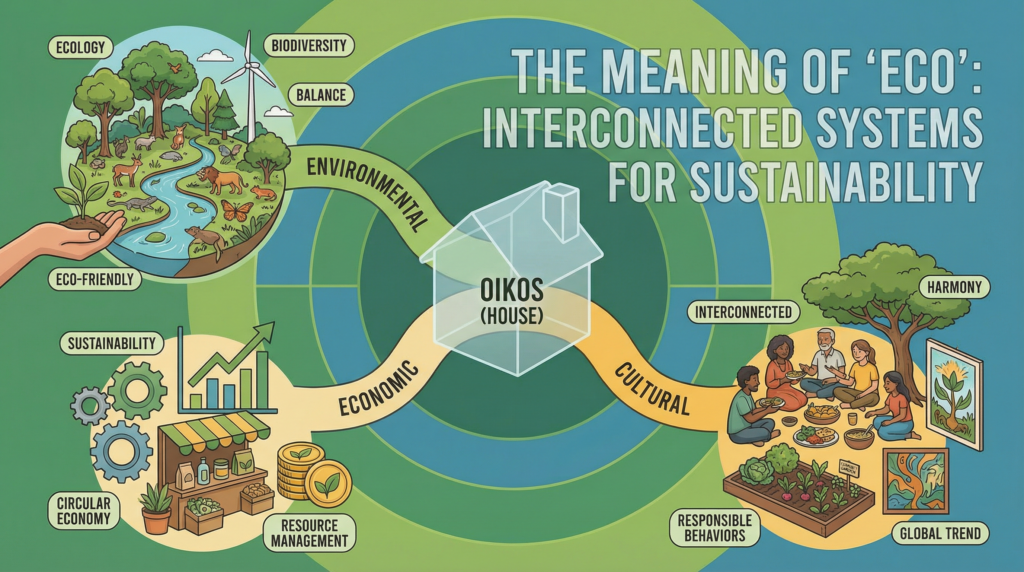
What does it mean: “Eco” is a term with broad implications, touching on environmental, economic, and cultural aspects. Derived from the Greek word “oikos” meaning “house” or “dwelling,” it has grown to represent interconnected systems and practices promoting sustainability and harmony.
In the environmental context, it pertains to ecology, emphasizing the study of how living things interact with their surroundings. It underscores the need to maintain a balance for the well-being of ecosystems and biodiversity. Phrases like eco-friendly and eco-conscious highlight the global trend toward environmentally responsible behaviors.
In economics, it connects to terms like economy and ecosystem, emphasizing the interdependence of economic activities within a broader system. Concepts like the circular economy, which promotes resource reuse and recycling, align with an eco-centric approach to economic development.
Culturally, it extends to lifestyle choices and societal values, representing a commitment to choices that minimize harm to the environment. Phrases like eco-living and eco-consciousness reflect a collective effort to adopt sustainable practices and reduce ecological footprints.
The term finds expression in various fields, such as ecotourism, encouraging responsible travel, and eco-architecture, focusing on sustainable building practices. It also extends to eco-psychology, exploring the connections between individuals and the natural world for holistic well-being.
Overall, eco symbolizes a global movement toward sustainable living. It acts as a reminder of the intricate relationships binding humanity to the planet. As societies grapple with environmental challenges, the prefix eco inspires a collective consciousness, urging individuals and communities to embrace environmentally conscious and responsible lifestyles.
